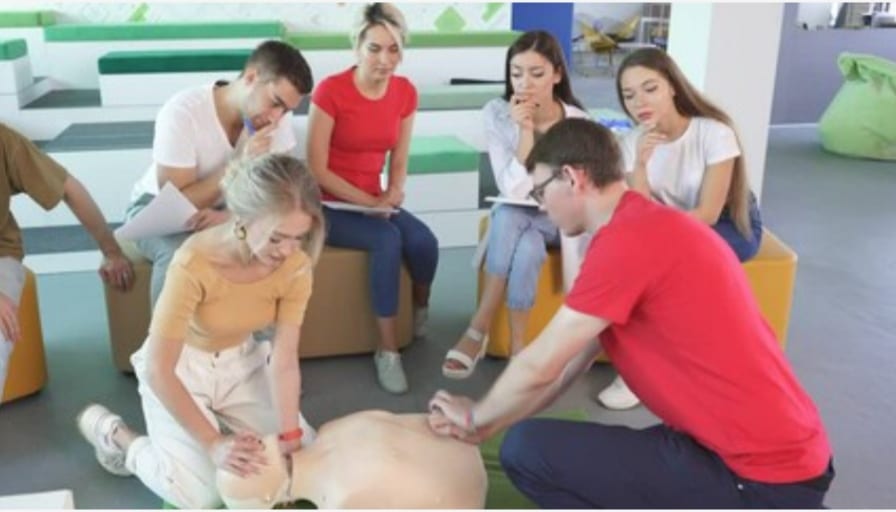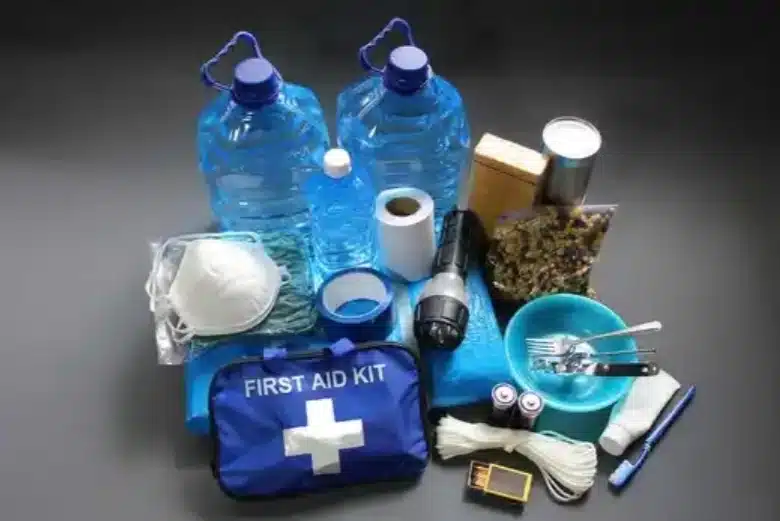Have you ever thought about how fragile our existence is?
Time goes by faster than a blink of an eye, and soon enough, we're ageing and becoming prone to many health problems.
But ageing isn't the only thing that makes us fragile; there are other risks like having a major accident or unexpected health problems that might occur.
After all, you never know when you or anyone around you might get ill or have a major accident. While we shouldn't live our lives in fear of this, it's always better to be prepared than be at risk of having no one around to help others around or yourself.
We can't just sit around thinking others will help us when we could be in unexpected situations that might need us to solve on the spot. So, take control of your learning and take a first aid course!
To convince you further, today we're going to look at why you should take a first aid course.
Why should you take a first aid course?
First aid has so many benefits to learning that the article would be a never ending list if we started them all. Therefore to help draw your attention to the importance, we've stated the top reasons for learning which are:
1. It can save lives
One of the most important reasons to take a first aid course is that it can make a huge difference; it can be a matter of life or death. In fact, the Red Cross has indicated over 59% of pre-hospital deaths could have been stopped if people knew basic first aid.
Just imagine the power you could have treating someone while you wait for an ambulance to arrive! Plus, if you're in the workplace and have staff trained up on first aid, it will give people the confidence to tackle any emergency which arises.
2. Reduces the amount of accidents in the workplace
Simply by having basic first aid knowledge, you can help make your workplace safer for your employees and co-workers. It will also help you carry out better risk assessments limiting the areas with injuries from slipping and falling.
Alongside this, if you're there on hand to provide first aid assistance on the scene of the accident, you could help your employees immediately. Similarly, if you can attend to it quickly, it may make a huge difference and allow them to recover quicker. Also, if you're applying for a job and have a first aid qualification on your resume, it could increase your chances of getting hired.

3. Limit unwarranted visits to the hospital
There's nothing worse than travelling to the hospital to be seen and feeling like you've wasted the doctors and nurse's time. Some minor injuries like a bruised knee, bumped head, sprained ankle, and more can be easily managed if you know the right treatment.
For example, you could put on a bandage, stop swelling and wrap an ice pack on your legs. It also teaches you what injuries are urgent and what ones are less important to deal with.
4. Can stop injuries from getting worse
If you have the right knowledge of knowing how to treat injuries there and then, it can stop some serious ones from happening. This could help someone with a serious burn, bleeding or even a deep cut.
If you don't have the skills to intervene, the person's burn could worsen and lose lots of blood. If you can apply simple first aid techniques in a non medical setting, it could stop the person's condition from rapidly deteriorating, making them more stable.
5. Improve your confidence
Many people, when they experience an emergency, they often become overwhelmed with anxiety and panic. Many people take the bystander approach in case they do something wrong, like causing additional injuries to a person or catching a disease.
Reasons like this can often create a delay making it hard for the casualty to get the appropriate treatment they need. First aid courses can help provide a unique opportunity to learn what is required to be done to overcome such fears. Overall, first aid courses will create more confidence, composure, and self-assurance in an emergency.
6. It will help relay accurate information
If you're at the scene of an accident and attending to a person, basic first aid will help give you a general idea of what's wrong with the person. Having a general understanding will help you communicate more effectively with the emergency services.
Doing this will help them understand the urgency of the danger and send the right team out and the ambulance at the right speed. Also, the information that you give the emergency services can help speed up their rest and recovery periods.
7. Can help relieve pain
As mentioned earlier, some injuries may not require treatment in the emergency room at all. Some of which you will be able to attend to and stop the person from experiencing high volumes of pain. Sometimes having the proper knowledge, all it takes is to apply a simple ice pack or rub. Even if the pain is temporary, you will be helping the person.
8. Makes other people around you secure
If you're in the presence of others and they know you know first aid, then they're likely to feel comfortable. This stops people from making mistakes and is more likely to feel safer when you're there. Similarly, it can cause a more positive and confident environment for others to be in, where people are full of reassurance.
Final thoughts
Every human should take a first aid course in their lifetime. After taking the course, you should get your certificate straight away, don't wait for it. If a life-threatening incident was to happen, you would want to be full of confidence, ready to take control.
Alongside life and death situations, your first aid qualifications will also make you more employable and instil a sense of confidence around others. It will also help reduce the likelihood of workplace accidents and allow you to be prepared.
Related reading
- First aid in the home & three things you might face
- How CPR and First Aid Training Can Make a Big Difference in Your Life?
- Nurse Anesthetic Programs in Nigeria



